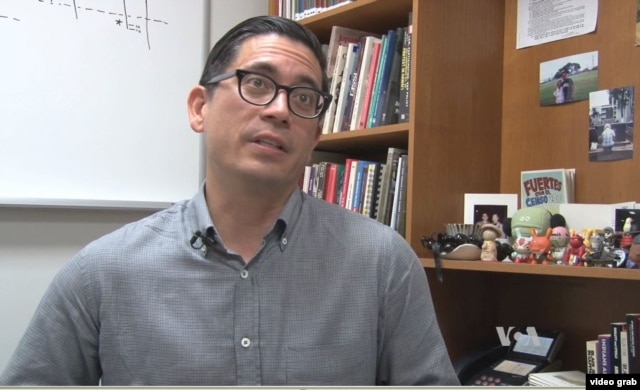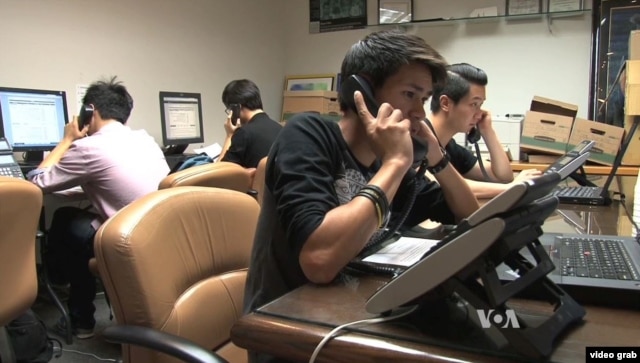
Asian-Americans Becoming More Politically Engaged
Elizabeth Lee
LOS ANGELES—For Hugh Tra, an immigrant from Vietnam who says he has been politically active since high school, U.S. foreign policy is personal.
“I care a lot about foreign affairs, about what the U.S. government decides to do,» said Tra, whose parents fled the Vietnam War. «I really do want our government to look at the history and culture of another society before making decisions, taking military action.
Tra, who lives in Southern California — home to many Asian immigrants — came to the United States with his parents when he was 2 years old. He said his parents were refugees from the Vietnam War and that his father shared those experiences with him.
“The bedtime stories, they weren’t like fairy tales or Disney stories. It was war and repercussions of war — impact of war,” he said. «The things he lost, the family members he lost during the war, what he experienced, what he went through, that shaped me tremendously.»
Growing electorate
Tra said his family history, combined with the September 11, 2001, terrorist attacks in the U.S., compelled him to become politically active.
Tra is part of a growing number of Asian-Americans who are becoming politically engaged, said Dan Ichinose, a project manager with the group Asian Americans Advancing Justice-Los Angeles.
Ichinose directs demographic research involving Asian-Americans.
“Between 2002 and 2012, there was a 60 percent increase in the number of Asian-Americans who registered to vote, so this growth is happening not only in places like California and New York, but places like the South, places like the Midwest. Particularly in close races, the Asian-American vote matters now,” he said.
Similar sentiments were echoed by Dan Schnur, director of the Jesse M. Unruh Institute of Politics at the University of Southern California.
“The levels of immigration from Asian countries now, of course outpace the number of immigrants coming from Latin America,» Schnur said.
Dan Ichinose, a project manager with the group Asian Americans Advancing Justice-Los Angeles, said a growing number of Asian-Americans are becoming politically engaged.
«The American political community hasn’t quite figured that out yet, and so as a result, Asian-American voters are not getting as much attention from either party as the increased number of immigrants coming from Pacific Rim countries would suggest,” he added.
By 2040, nearly 1-in-10 people in the U.S. is expected to be Asian-American.
Largely politically unaffiliated
Because people from Asia represent diverse cultures, languages and religious beliefs, Asian-Americans have not been as cohesive politically, Schnur said.
Although more Asian-Americans identify as Democrats than Republicans, nearly half are not affiliated with a political party, according to a study by the Pew Research Center.
Tra, who said he had been a Republican but now identifies as a Democrat, agreed with that assessment.
“I think there hasn’t been enough effort by either party to outreach to Asian Americans. Definitely, both parties need to step up their game and reach out to us,” he said.
Reaching out to immigrant Asian-Americans and getting them engaged means overcoming language barriers and educating them about the voting process.
Organizations such as Asian Americans Advancing Justice-Los Angeles conducts telephone banks in several different languages to encourage people to register to vote and go to the polls.
For now, that job falls on organizations such as Asian Americans Advancing Justice-Los Angeles. Its volunteers conduct telephone banks in several different languages to encourage people to register to vote and go to the polls.
Pragmatic politics
In California, Tra said many Asians are engaged and even running for office. He said when picking a candidate, he looks at the issues.
“I think I try not to be as dogmatic about my approach and understanding things. I think that can be very problematic, right? We got to be pragmatic about how we solve certain problems and look at a wider lens to understand everything before we make a final decision,” he said.
For the presidential election, Tra said he is looking at how each candidate deals with issues, such as immigration and income inequality, and that he is leaning toward voting for Bernie Sanders.



